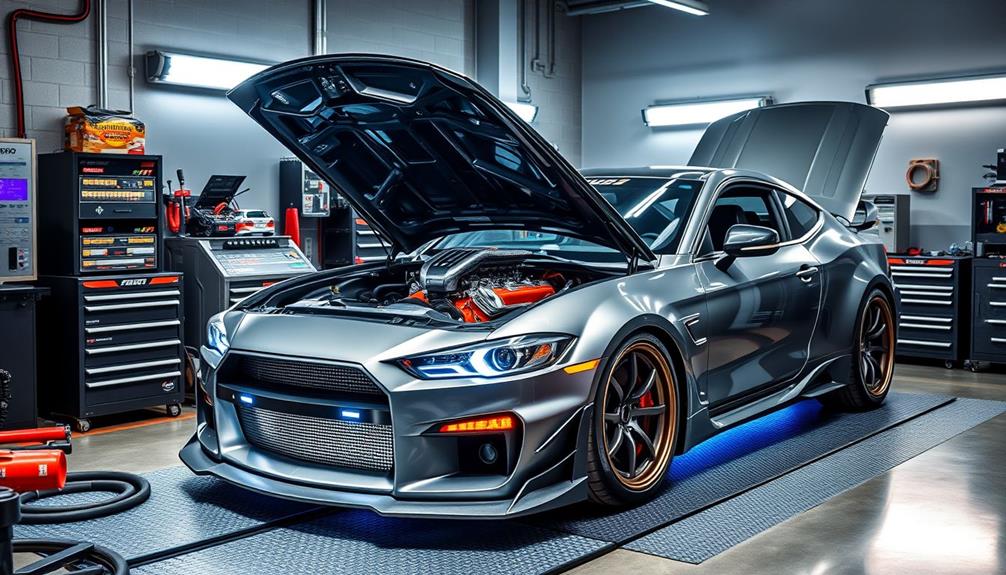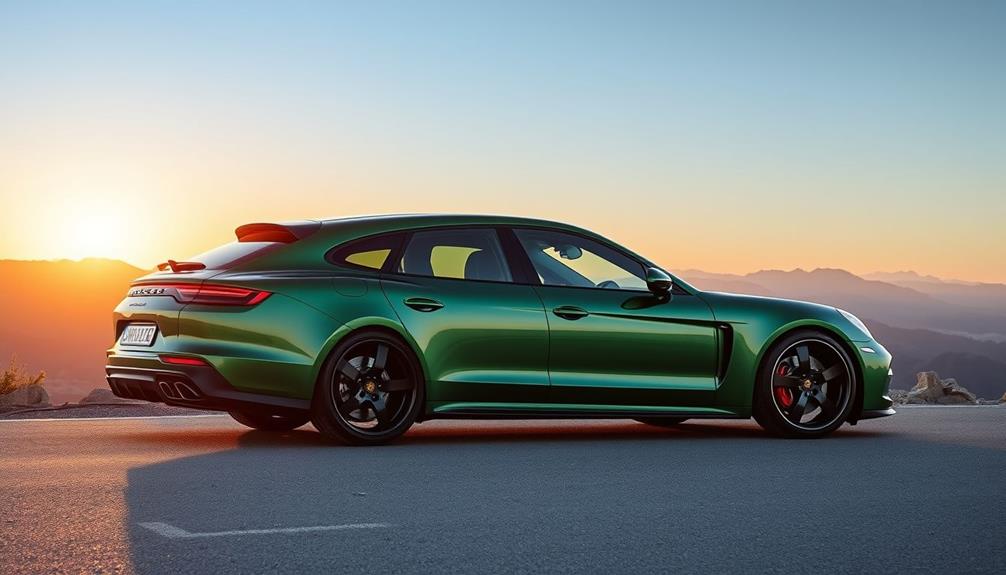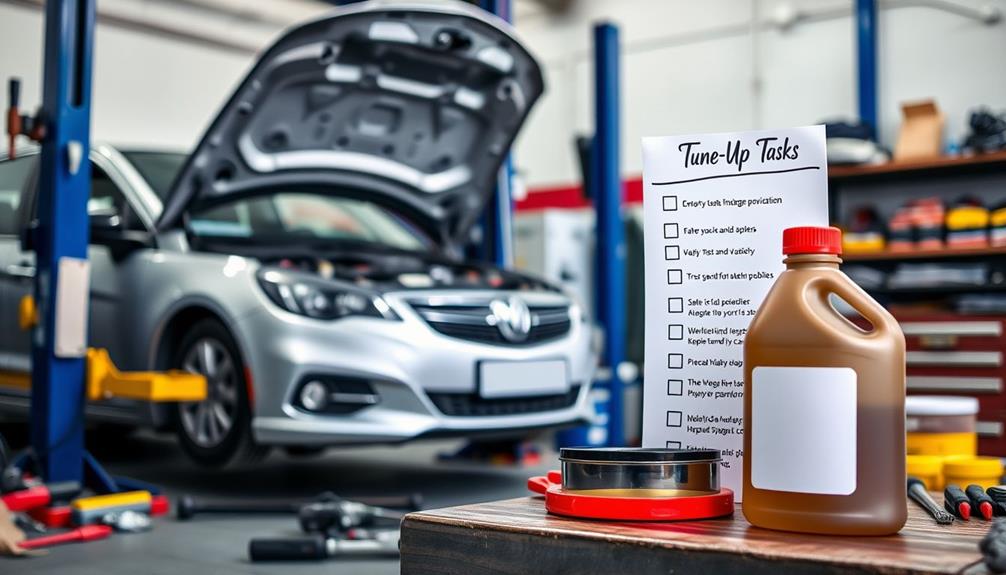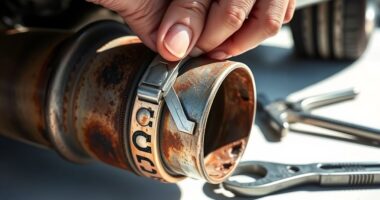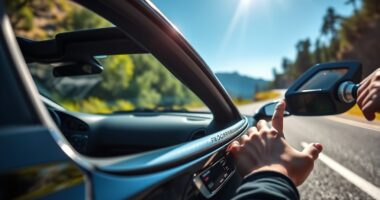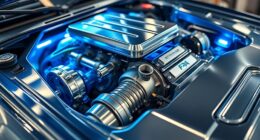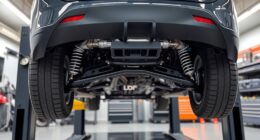Car tuning boxes might promise impressive power increases, but they often come with significant risks. These devices manipulate engine sensors, which can lead to overboost and torque oscillation, causing unpredictable performance. While you might gain some extra horsepower, the potential for engine damage is a real concern. Custom tuning offers a safer alternative, delivering smoother power delivery and improved engine longevity. Most drivers who've tried both methods often prefer the reliability and performance of custom calibrations. Curious about how tuning options compare and what might work best for your vehicle? Keep exploring to uncover the full story.
Key Takeaways
- Tuning boxes can provide power gains, but they often cause overboost and torque oscillation, leading to inconsistent performance.
- They manipulate engine sensors, risking severe damage and long-term engine management complications.
- Lean fuel mixtures from tuning boxes increase knock sensor activity, jeopardizing engine health and efficiency.
- Custom ECU tuning offers superior power gains and smoother performance without the risks associated with tuning boxes.
- Many drivers report preferring custom tuning for cleaner torque curves and improved overall vehicle reliability.
Understanding Performance Metrics
When you're looking at car tuning, understanding performance metrics is essential for making informed decisions.
Take the RS4, for example. With a tuning box, it can deliver 495 bhp and 560 lb-ft of torque, a solid gain of 40 bhp and 60 lb-ft over stock performance. At first glance, that sounds fantastic, but don't overlook the potential pitfalls.
Tuning boxes manipulate engine sensors, which can lead to overboost scenarios, causing oscillating torque between 2000 to 4000 RPM. This can create issues like excessive heat and even long-term engine damage under heavy loads.
On the flip side, if you opt for custom ECU calibration, you could push the RS4 to an impressive 520 bhp and 590 lb-ft of torque. Not only does this approach yield higher power, but it also results in a cleaner torque curve and cooler combustion temperatures.
Plus, accurate torque reporting with custom calibration considerably reduces the risk of gearbox issues, enhancing overall driveline safety. By grasping these performance metrics, you can make a more educated choice about how to tune your vehicle effectively.
Engine Management Complications

Engine management complications often arise when using tuning boxes, and it's crucial to understand how they can affect your vehicle's performance.
While these devices aim to enhance power, they often manipulate engine sensors in ways that lead to considerable issues.
- Overboost Scenarios: Tuning boxes can push your engine beyond safe limits, risking severe damage.
- Inconsistent Performance: You'll likely notice torque oscillating between 2000 to 4000 RPM, which can make your driving experience unpredictable.
- Increased Knock Sensor Activity: A lean fuel mixture caused by tuning boxes can lead to engine knocking, jeopardizing long-term health.
One of the most concerning problems is the ECU's inability to adjust to the actual engine conditions when a tuning box is in play.
This limitation can lead to long-term complications, especially under hard load scenarios. As a result, your engine may suffer from poor management, ultimately affecting reliability and longevity.
For those seeking a more reliable solution, custom ECU calibrations allow the engine control unit to adapt to actual airflow and torque, greatly improving overall engine management without the risks associated with tuning boxes.
Advantages of Custom Tuning
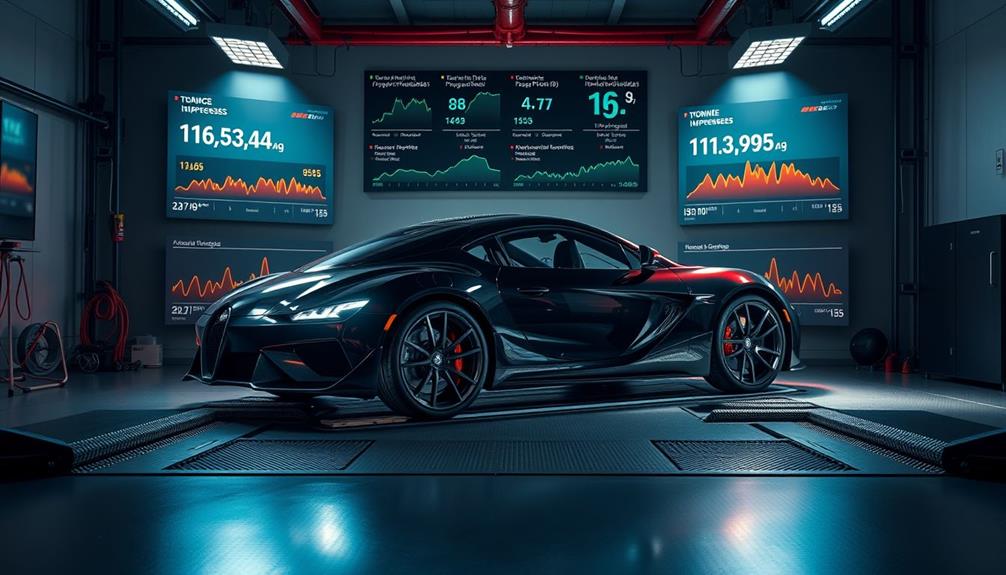
Custom tuning offers significant advantages over tuning boxes, especially in enhancing your vehicle's performance and reliability.
With custom tuning, you can achieve impressive gains of up to 520 bhp and 590 lb-ft of torque, surpassing the benefits of tuning boxes by 20 bhp and 30 lb-ft. This level of performance is achieved through precise ECU calibration that keeps a wide-open throttle from 2000 to 7000 RPM, resulting in smoother power delivery and improved engine response.
Additionally, the custom tuning process promotes cooler combustion temperatures due to richer lambda settings. This not only boosts performance but also enhances engine longevity, ensuring your vehicle runs efficiently for years.
Accurate torque reporting and adjustments further minimize the risk of gearbox issues and clutch slip, particularly in dual-clutch transmissions.
The cleaner torque curve generated by custom tuning leads to more efficient driveline performance, offering a safer and more predictable driving experience compared to the erratic behavior of tuning boxes.
Enhancing Safety and Reliability
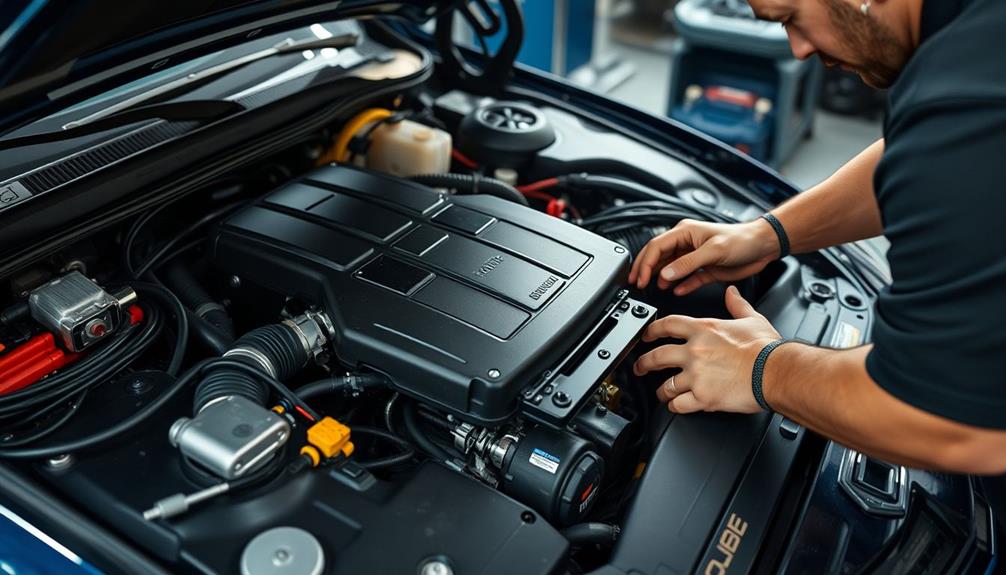
Boosting your vehicle's performance through custom tuning not only enhances power but also greatly improves safety and reliability.
When you opt for custom ECU calibration, you're actively reducing engine stress and ensuring cooler combustion temperatures. This leads to a safer driving experience.
Here are some key benefits of enhanced safety and reliability through custom tuning:
- Reduce Engine Damage Risk: Custom tuning limits maximum knock to just 2 degrees per cylinder, considerably lowering the chance of engine damage.
- Prevent Gearbox Issues: With accurate torque reporting, you keep your drivetrain reliable even under heavy loads.
- Minimize Clutch Slip: Custom calibration effectively manages engine torque, reducing the risk of clutch slip in dual-clutch transmissions.
Real Customer Experiences

Many drivers have shared their experiences with tuning boxes, revealing a mix of excitement and caution.
While many users report impressive power gains—like the RS4 hitting 495 bhp and 560 lb-ft of torque—these enhancements often come with significant drawbacks. You might find that, although your vehicle initially feels more powerful, tuning boxes can lead to engine management issues, such as overboost scenarios and oscillating torque, particularly in the 2000 to 4000 RPM range. This can make your car feel less responsive and harder to control.
Customers have also raised concerns about increased knock sensor activity due to lean mixtures, which can jeopardize your engine's health.
Many drivers ultimately prefer custom ECU calibrations instead. These solutions often yield cleaner torque curves and greater performance, sometimes pushing power to 520 bhp and 590 lb-ft torque, all while reducing combustion temperatures.
Frequently Asked Questions
Do Tuning Boxes Actually Work?
Tuning boxes can boost your car's power, but they often cause problems. While you'll notice immediate gains, the risks of engine damage and management issues make them less reliable compared to custom ECU tuning. If you want to safely and effectively optimize your car’s performance, it’s best to consult a car tuning guide for professional advice. Custom ECU tuning allows for a tailored approach to your vehicle’s specific needs, minimizing the risk of damage and maximizing performance gains. A car tuning guide can provide valuable insights and techniques for getting the most out of your vehicle, without jeopardizing its longevity or reliability.
Can Tuning Boxes Be Detected?
Yes, tuning boxes can be detected by your vehicle's ECU. It logs performance data, and any inconsistencies in sensor readings or abnormal parameters can reveal their presence, potentially triggering fault codes during diagnostics.
Do Performance Tuners Really Work?
You'll find that custom ECU calibrations can boost performance up to 520 bhp. While performance tuners do enhance your vehicle, they vary in reliability, with custom tunes offering safer, more consistent improvements compared to tuning boxes.
What Are the Disadvantages of a Tuning Box?
Tuning boxes can lead to overboost, engine damage, and increased knock sensor activity. They limit your ECU's adaptability, resulting in inefficient throttle control and potential reliability issues, plus they may cause clutch slip in dual-clutch transmissions.
Conclusion
In the end, car tuning boxes can feel like a quick fix—a band-aid on a deeper wound. While they might boost performance temporarily, they often overlook the complexities of your engine's needs. Custom tuning, on the other hand, is like a tailored suit; it fits perfectly and enhances your vehicle's true potential. So, if you're serious about performance and reliability, consider investing in a solution that addresses the heart of your engine, not just its surface.
